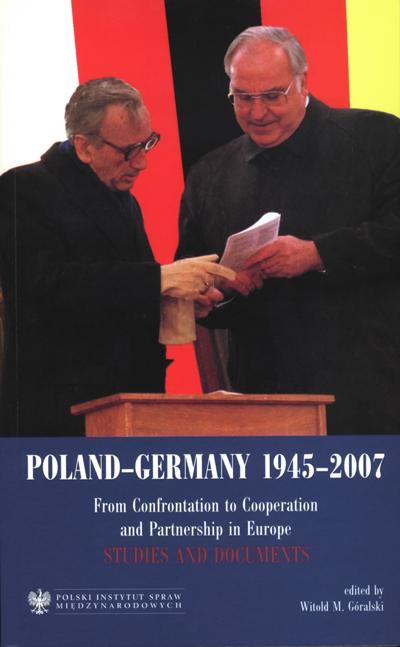Polish Raison d’État and Détente in Europe: the Normalization of Relations Between Poland and Germany in the Years 1970–1977
Polish Raison d’État and Détente in Europe: the Normalization of Relations Between Poland and Germany in the Years 1970–1977
Author(s): Witold M. GóralskiSubject(s): Politics / Political Sciences
Published by: PISM Polski Instytut Spraw Międzynarodowych
Summary/Abstract: Introduction 1. The Genesis of Détente in European Relations 2. Polish Raison d’État and Negotiations with the FRG for the Normalization Treaty 2.1. Rapprochement. The Premises of the Social-Democratic Eastern Policy 2.2. The Negotiation Mandate. Political and Legal Premises of the Polish Position 2.3. The Polish Concept of the Normalization Treaty 3. The Signing of the Treaty of 7 December 1970. A Compromise or a Setback? 4. The Confrontation of Two Raisons d’État on the Basis of the 1970 Normalization Treaty 4.1. The FRG’s Legal Position after the Conclusion of the 1970 Treaty 4.2. The Polish Legal Position on the Border and Former Eastern Territories of the German Reich in Light of the Potsdam Agreement 4.3. The Reinforcement of the Polish Legal Position after the Conclusion of the Treaty of 1970 5. The Results of the Normalization Process in Relations between the PRP and the FRG in the Period of Détente and Cooperation 5.1. The Dispute about the Program for Regulating Mutual Relations 5.2. The Consequences and Drawbacks of Normalization in Relations between the PRP and the FRG in the Years 1972–1977 6. Polish Raison d’État and the Process of Normalizing Relations between the PRP and the FRG in the Period of Détente and Cooperation On 7 December 1970, Poland and West Germany signed a treaty on the normalization of relations. In the close to 25 years since the conclusion of the Second World War, this was the first significant step to be taken in relations between the two countries. It symbolized the end of the Cold War confrontation between the People’s Republic of Poland (PRP) and the Federal Republic of Germany (FRG) and, at the same time, prepared the way for resolution of an issue of fundamental importance for the further development of relations between the two countries—the dispute over recognizing the Oder and Lusatian Neisse rivers as Poland’s western border, with all the ensuing consequences in international law.
Journal: PISM Series
- Issue Year: 2007
- Issue No: 3
- Page Range: 77-113
- Page Count: 37
- Language: English

